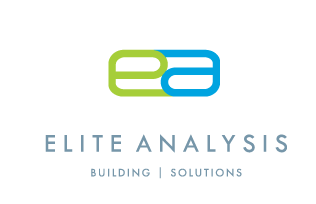WHAT IS WITH ALL THESE HOME INSPECTIONS?
When you think about it, buying a home is ultimately the result of many decisions that will be made by a variety of people, including: you, your spouse and other family members who will be living their lives in the new abode and want to be happy with the final choice; the seller, who may be looking for the “right” buyer to replace his or her family for years to come; your real estate agent who is attempting to find the best “fit” based on your budget and your needs; and the seller’s real estate agent who will be negotiating the best purchase price for his or her client.
Of course, you will also be talking to a bank or mortgage broker to find out if you qualify for a loan, how much it will be, and what interest rate you will be required to pay. You’ll also talk to an insurance agent as well, since no lender will finance a home purchase unless the property is insured against loss.
But in addition to these parties, there is another group of people whose professional opinions will influence your decision about the home you hope to buy and help you determine if the house is really the home of your dreams or a nightmare in the making. These are the home inspectors. How many different types of home inspections are there and which ones should you consider having? Well, that depends on several factors.
The Pre-Purchase Inspection
The most important and most frequently requested type is the pre-purchase inspection, performed by a professional home inspector, and generally costing a few hundred dollars. The purpose of the pre-purchase inspection is to check the structural integrity of the home, as well as make sure that the plumbing, heating and electrical systems are problem-free and working as intended.
If the inspector’s report shows that the home has any existing, or potential, structural or mechanical problems or defects, you now have information that you can apply in various ways. In some cases, if the problems are large enough or very expensive to remediate, you may decide to negate the purchase agreement, altogether. Or you may decide to renegotiate the selling price, or perhaps ask that the seller make the necessary repairs before you agree to go forward with the purchase. At the least, your home inspector can advise you as to what additional costs you may incur in repairs or replacements, should you decide to go ahead with the sale.
Other Types of Home Inspections
- Termites – While for many home buyers, the pre-purchase inspection is all that is necessary, for some buyers it may only be a prelude to more specialized inspections. These can include a pest or termite inspection, which is especially advised in warmer climates where termites and other wood destroying organisms are known to abide. Rotted wood in unseen areas can literally be the downfall of your new home. If structural wood is damaged, you want to know before you buy your house.
- Pools – Some properties may have an in ground pool, which might require an inspection by a licensed pool contractor. The pool inspector will check for leaks in the actual pool, as well as throughout the plumbing lines. An underground pool leak can be a very expensive thing to repair. It’s best to know up-front, and before a home is purchased, if that type of major fix is going to be necessary. Pumps, heaters and filters will be checked for proper operation. The electrical equipment needs to be inspected as do the deck surfaces and any safety covers and the hardware that secures them in order to evaluate their condition and longevity.
Other inspections may include those for outdoor soil contamination or indoor mold. It all depends on the nature of the property, what problems may have existed in the past, and how much information you want to consider before signing the closing papers.
The Four Point Inspection
Another type of home inspection is the four-point inspection. This inspection is performed for the benefit of your home insurer who may have determined that covering your home for loss would not be a profitable decision to make based on the age and condition of the property. In fact, insurance companies have become increasingly reluctant to issue homeowner policies on homes older than 25 years, so having and passing a four-point inspection may be necessary if you are the buyer of an older home and want to obtain an affordable policy.
A Four Point Inspection focuses only on these four main areas of interest:
- HVAC (Heating, Ventilation and Air Conditioning)
- Electrical wiring and panels
- Plumbing connections and fixtures
- Roof
HVAC – The inspector will report on the age and condition of your heating and A/C units. Most insurance carriers want these systems to be 15 years old or less, and some companies want systems to be less than 10 years old. The inspector will determine the overall condition of these systems and report on any upgrades or deficiencies.
Electrical – The inspector will report on the type and condition of your electrical system. He will be looking for aluminum branches, frayed or loose wiring, GFCI’s, AFCI’s, active knob and tube wiring and any recent upgrades. Things like old or exposed breakers and wiring and outdated electric panels may require updating before insurance will be offered.
Plumbing – The inspector will report on the overall age and condition of your plumbing system, including the main supply and waste lines and all indoor pipes and fixtures, as well as the age and type of your water heater. He will search for leaks, check the shutoff and TPR valves, and other miscellaneous items. Old water heaters and piping may need to be upgraded before insurance will be offered.
Roof – The inspector will report on the age, condition, geometry and construction of your roof. He will look for leaks, roof damage, missing sheathing and the condition of your roof decking, trusses and soffits. Old or damaged roofs may need to be replaced or repaired before insurance will be offered.
The Wind Mitigation Inspection
In areas where high winds are common, such as Florida and other southern or coastal regions, a wind mitigation inspection can sometimes result in some level of discount on a homeowner’s insurance policy. The point of a wind mitigation inspection is to determine your home’s ability to withstand windstorm damage. Generally, the inspection will cover the following categories:
Roof Covering: When the roof was installed and whether it meets current building codes.
Roof Deck Attachment: What type of roof decking is used and whether it is attached to the underlying structure by staples or nails. If nails are used, the nail length and the spacing between each will be noted.
Roof to Wall Attachment: Whether or not the roof is attached to the trusses with nails or hurricane clips.
Roof Geometry: A roof may be hipped or gabled. Hip roofs are generally more stable.
Gable End Bracing: If the roof is a gable style, an inspector will review if the gable ends are braced to code standards. Gable ends measuring more than 48 inches tall should be braced for reinforcement.
Wall Construction Type: The inspector will review the construction materials used on your home for framing, reinforcement, and outer fascia, and at what percentages. Steel reinforced concrete block homes are stronger than those with a plywood-only frame.
Secondary Water Barrier: This is a newer item for roofs. If your roof was installed or upgraded before 2008, it’s fairly unlikely you’ll have this sort of barrier.
Opening Protection: The inspector will be looking for shutters and installed-protection devices from wind-born debris for doors and windows.
Depending upon the inspector’s final report on the above categories, the insurance company can apply a discount that might save a homeowner who passes the inspection, several hundred, to over one thousand dollars annually, on his or her insurance premium. So, a wind mitigation inspection might well be worth the cost.
How Many Inspections do I Need?
In the end, the type and number of home inspections you decide to have will depend on many things, including: the age of your home; the area where you intend to live; the potential for unseen problems cropping up after closing; and what type of insurance discounts you may be eligible for. Another thing to consider is how much peace of mind you desire and what it might cost you in the future if you decide to forego a particular inspection because of the price. As always, your best bet is to consult a home inspection professional for the advice and information you need. Then make the best decision you can based on your budget and personal preferences.
